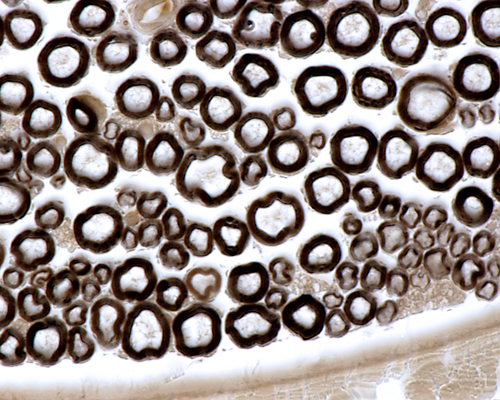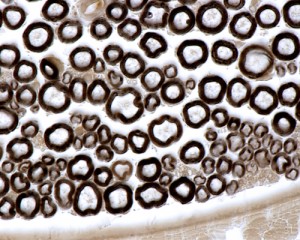Remyelination Strategies for Multiple Sclerosis Presented at Biogen Idec-Sponsored NYAS Conference

 On June 26th, a conference devoted to the topic of “Demyelination and Remyelination: From Mechanism to Therapy” will be presented by the New York Academy of Sciences and Acorda Therapeutics. The topic hits home to millions of people worldwide suffering from demyelinating diseases, especially those affected by multiple sclerosis.
On June 26th, a conference devoted to the topic of “Demyelination and Remyelination: From Mechanism to Therapy” will be presented by the New York Academy of Sciences and Acorda Therapeutics. The topic hits home to millions of people worldwide suffering from demyelinating diseases, especially those affected by multiple sclerosis.
Conference scientific co-organizer and keynote presenter Robin Franklin, Ph.D., emphasized the impact of the conference in a news release, stating, “Regenerative medicines for neurological disease represents one of the greatest medical challenges. However, our knowledge of the biology of remyelination has made such progress in recent years that regenerative medicines for chronic demyelinating diseases such as multiple sclerosis are no longer in the realms of aspiration but are now on the brink of clinical reality.” Dr. Franklin is the Head of Translational Science at Wellcome Trust-Medical Research Council Cambridge Stem Cell Institute in the University of Cambridge.
The one-day meeting program lists a number of sessions discussing the biology of remyelination, targets for identifying remyelination, imaging techniques used in the clinic, and emerging advances in clinical therapeutics. The conference sponsor, Biogen Idec, has made significant contributions to multiple sclerosis therapies and studies, including the commonly-prescribed Tysabri (natalizumab), which was featured at recent Medical Congresses but is not touted as a remyelination therapy.
[adrotate group=”4″]
According to the website for the conference agenda, studying brain tissue and oligodendrocyte (myelinating cell) development has created new therapeutic targets for multiple sclerosis treatment focused on repairing the damaged myelin sheath surrounding axons. This is important, considering a comment from conference scientific co-organizer and speaker Patrizia Casaccia, MD, PhD, “We are facing a tremendous progress in technology and strategies for myelin repair and yet, the clinical neurologists can only rely mostly on immunomodulatory therapies. This conference on remyelination is aimed at providing an exciting forum for discussion and showcasing the latest scientific discoveries.” Dr. Casaccia is from the Departments of Neurology and Genomics and Multiscalce Biology at the Icahn School of Medicine at Mount Sinai.
Mayo Clinic features basic science projects delving into remyelination, including a clinical trial from Mayo Clinic and Acorda Therapeutics investigating the use of rHIgM22 in patients with multiple sclerosis. It is in Phase 1 clinical trials, and preclinical trials showed new myelin production and an enhancement of function in animal models of demyelination. rHIgM22 is a monoclonal antibody originally identified by Arthur Warrington, PhD, Assistant Professor of Neurology at Mayo Clinic.
Along with admittance to the conference, registration includes a one-year membership with the New York Academy of Sciences.






